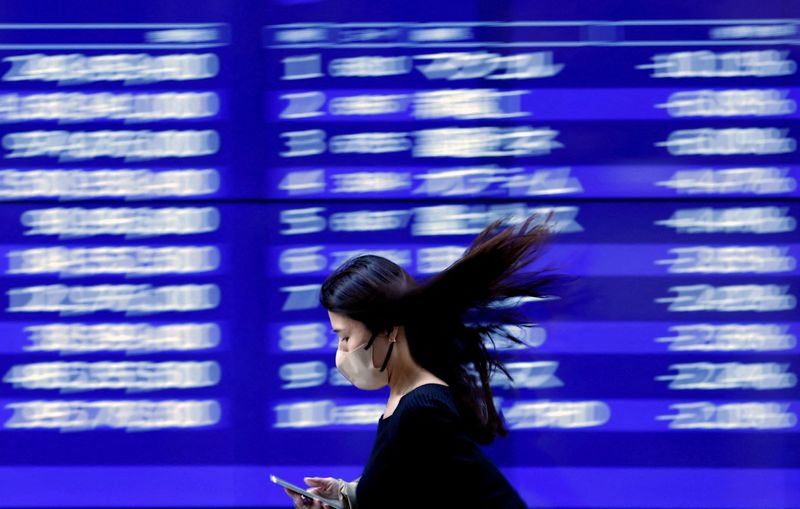Select Language

By Tom Westbrook
SINGAPORE (Reuters) - Gold was headed for its largest weekly gain in nearly eight months on Friday and the euro hovered at a 13-month low as Russia lowered its threshold for using nuclear weapons and fired a hypersonic ballistic missile at Ukraine.
The risk of escalation also sent European gas prices to a one-year high and pushed investors towards safe havens, underpinning German debt and putting the Swiss franc on course for its first weekly rise in two months.
In Asia on Friday, chipmakers led stocks a little higher after Nvidia (NASDAQ:NVDA) touched a record high in U.S. trade on solid earnings, with shares in Taiwan and South Korea up more than 1% and the Nikkei gaining 0.8%.
Gold was steady at $2,677 an ounce and up more than 4.5% for the week so far while bitcoin, stood on the brink of breaking above $100,000 for the first time.
Assets linked to Adani Group companies remained under pressure, with dollar bonds nursing losses following chairman Gautam Adani's indictment for fraud by U.S. prosecutors.
Russia on Tuesday lowered its threshold for using nuclear weapons and overnight responded to the U.S. and UK allowing Kyiv to strike Russian territory with western weapons by firing a hypersonic intermediate-range missile at Ukraine's Dnipro.
"Those weapons typically carry nuclear warheads," said analysts at ANZ Bank, noting the attack sent oil prices higher.
"The exchange indicates the war has entered a new phase, raising concerns around disruptions to supply."
Brent crude futures are up nearly 4.5% on the week and edged up to touch a two-week high of $74.44 a barrel in Asia trade.

